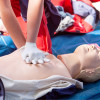By The Acclaim Team on 26th February 2021 in News
If you’ve not long passed your test and are about to embark on your first long drive, you may be uncertain of how best to prepare. As a new driver, even a three-hour drive can feel much longer and can be a daunting prospect.
Whether it’s your first time taking motorways or your first long trip, there’s a couple of steps we advise you to take before setting off. Here are our tips for how to prepare for a long drive.
1. Plan Ahead
As easy as it may be, you shouldn’t take a long drive without planning ahead first. Planning before will make your journey less stressful and will keep you on track.
We recommend fueling your tank and planning out your timings by making a list of your stops, including service stations and breaks. This can help if you find yourself overwhelmed when late or running behind schedule.
If your road trip spans over several days, you should take note of stays at hotels or campsites along the way to ensure that you have somewhere to stay.
2. Sleep & Rest
Our best advice to prepare for your first long drive is to get plenty of sleep the night before. Driving takes a lot of concentration, and long drives, in particular, can be very tiring.
This is why you should stop off at a service station to grab a coffee, stretch your legs and take a well-deserved rest. Keep your energy up to help you stay alert while driving. Frequent breaks also make the journey much more enjoyable!
3. Take turns to drive
If you’re lucky enough to be travelling with another driver who happens to be insured on your car, it might be wise to take turns to drive during the journey so that you both get the chance to take some rest.
Cuvva offers temporary car insurance cover for between one hour or 28 days, meaning that any driver can get behind the wheel of your car and be fully covered.
4. Check the Rules of the Road
Travelling through different countries in the UK? If your long journey involves you driving through England, Wales, Scotland or Northern Ireland, or even outside of the UK, it’s crucial to check the laws of the road in other countries, as well as knowing the rules of your own country.
We do recommend having the official DVSA theory book in your car at all times in case you need to check the UK laws or make yourself aware of road signs at any time.
And, if you’re driving outside of the UK, it’s compulsory for you to check which side of the road you should be driving on.
5. Stay Hydrated
A long road trip calls for caffeine and staying hydrated, which increases your focus, concentration and alertness.
As you’re more likely to experience dehydration on the road, you should have a bottle of water to hand or stop at a service station to stock up. Keeping hydrated also helps you stay awake and be more alert.
6. Pack Essential Road Trip Items
There’s no harm in over-packing and taking essential items on a road trip. While it’s highly unlikely you’ll have to use some of these items listed below, there is always the risk that you can break down.
-
Important documents - these include your driving licence, car insurance details and a phone number for breakdown services
-
Sat-nav to give you directions if it’s a route you’re not familiar with. This can also help if you need to make a stop to refuel or grab some food and drink. Alternatively, you can use your phone for directions, providing it’s out of your reach and you do not touch it unless safely pulled over
-
A torch (if you break down at night)
-
A first-aid emergency kit
-
Sunglasses to prevent the sun from blinding your view
-
A spare tyre and car jack (these are typically located underneath the floor panel in your boot)
-
Green card and EU registration plate or GB sticker (if travelling abroad)
7. Car Maintenance Checks
It’s crucial to give your car the once over before any long drive, as well as carrying out these checks very regularly.
Oil
In order for your engine to get enough lubrication, you’ll need to have sufficient oil levels. For this reason, you’ll want to check oil levels to make sure the oil level is between the minimum and maximum markers.
Engine Coolant
Engine coolant protects your engine from overheating, so it’s important to check engine coolant levels. As engine coolant removes excessive heat from your engine and also prevents the water from freezing, it’s crucial to check the coolant level at all times throughout the year.
Tyres
Your tyres will go through a lot of wear and tear on any journey, which is why you should always check the tyre pressure and tread depth before any long journey. Tyres should be inflated to the correct pressure and tread depths must be above the legal limit of 1.6mm, of course, you can use a 20p coin to check the tread depth by inserting it into the tread grooves. If you can’t see the outer band of the coin, your tyres are above the legal limit.
Lights
As your lights make you more visible to other road users and are used to signal your intended actions to other drivers, you should check your lights are in full working order. It may help to ask a friend or relative to help you check.
Washer Fluid
You will need to see where you’re going, so it’s important that all windows are completely clean before embarking on a journey. For this reason, you should check washer fluid levels before setting off.
Check Wipers
Your window wipers are needed to clear the front and rear windscreen of rain or water, so it’s important to check that the wipers are not worn out and the wiper motor is still in full working order.
8. Breakdown Cover
We also recommend having breakdown cover in the unlikely event that your vehicle breaks down, due to a flat battery, punctured tyre or any other fault. If you’re not sure where to begin, we recommend visiting a breakdown cover comparison website.




